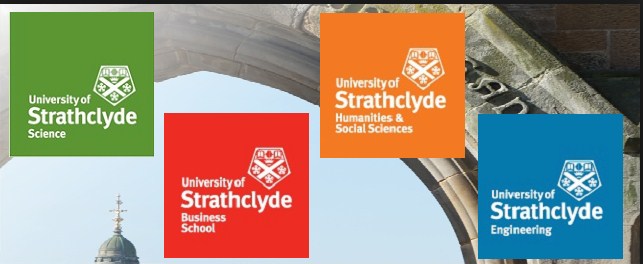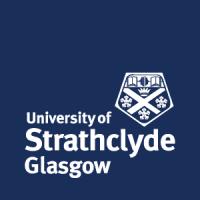BEng Hons Sports Design Engineering
For many, the perfect way to combine a passion for sport and technology is through a career in sports design engineering.
Sports design engineering concentrates on the conception, design and manufacturing of sporting equipment. Sports engineers work in nearly every sport, creating designs that meet specialised specifications to improve athlete performance, safety and sports product durability. For example, sports engineers could be involved with projects as diverse as designing new high specification football boots or fitness monitoring and improvement products, match and playing surface analysis equipment to developing image processing algorithms which act as analytical tools to determine strategic instances in a game. The background our students gain in biomechanics also makes careers in medical device development and design a viable career route which is an exciting area due to the new and emerging sports and widening participation in sports for example prosthetics and guidance for partially sighted.
The subject is both technical and creative in its nature and attempts to quantify the performance gains that might be achieved through a particular design or method. Top athletes rely on the work of the sports design engineer who develops cutting edge equipment by translating new developments from biomedical engineering and science fields in user requirements. With global growth in participation, investment in and spectators for a vast range of sports, this translates well to great career prospects for sports engineering graduates.
A sports engineer requires expertise in many technical skills; from engineering design to understanding biomechanics of human movement, technology concepts to production techniques. This is integrated with manufacturing processes, CAD, rapid prototyping and digital prototyping technologies, software and practical skills to turn the design and production process into reality which is fundamental to global market success.
Sports design engineering is about understanding product requirements and functionality, questioning existing ways of doing things and seeing opportunities to change things for the better.
You will focus on modules that allow you to develop your knowledge on how equipment and products are designed for sport such as:
- Anatomy & Physiology for Biomedical Engineers
- Sports Engineering
- Biomechanics of Human Movement – Theory & Measurement
- Physiology of Aerobic Exercise
- Sports Injury & Rehabilitation
- Advanced Topics in Human Movement
As well as engineering design modules which allow you to develop your appreciation of feasible design and production options such as:
- Total Design
- Technology Concepts
- Production Techniques
- Engineering Design
- Product Development/Product Programming
- Mechatronics Design & Applications
Intakes
- Jan
- Sep
Application Processing Time in Days: 14
Application Process
Minimum English Language Requirements
| English Level Description | IELTS (1.0 -9.0) | TOEFL IBT (0-120) | TOEFL CBT (0-300) | PTE (10-90) | |
|---|---|---|---|---|---|
| Expert | 9 | 120 | 297-300 | 86-90 | |
| Very Good | 8.5 | 115-119 | 280-293 | 83-86 | |
| Very Good | 8 | 110-114 | 270-280 | 79-83 | |
| Good | 7.5 | 102-109 | 253-267 | 73-79 | |
| Good | 7 | 94-101 | 240-253 | 65-73 | |
| Competent | 6.5 | 79-93 | 213-233 | 58-65 | |
| Competent | 6 | 60-78 | 170-210 | 50-58 | |
| Modest | 5.5 | 46-59 | 133-210 | 43-50 | |
| Modest | 5 | 35-45 | 107-133 | 36-43 | |
| Limited | 4 | 32-34 | 97-103 | 30-36 | |
| Extremely Limited | < 4 | < 31 | < 93 | < 30 |
Job Opportunity Potential
Graduate employers not only ask for a degree qualification, they expect job applicants to bring a range of skills that they have gained outside of their studies, e.g. through work experience, volunteering, part-time jobs. Strathclyde University Careers Service will be happy to help you to prepare for your future graduate career once you become a member of Strathclyde University.
At some stage we all make choices about the career path we will follow. We can help you with this process if:
- You are unsure where to start,
- You have no idea of the career that would suit you,
- You have some vague ideas but need support to think them through,
- You need help finding more information
It is never too early to start thinking about your future career. We're happy to work with you from first year, throughout your degree and beyond graduation - at whatever stage you’ve reached in your thinking.
Choosing My Career
A great place to start is with our interactive online course Choosing My Career. It will help you make it a conscious and thoughtful decision, giving you the best chance of choosing a career path that suits your personality, skills and strengths.
This course helps you to:
- Understand the process of making a career decision
- Think about what you want from a career
- Explore the options available to you
- Plan your next steps to make it happen
PSW Opportunity
2 Years PSW is applicable after the course completing (Bachelors level or above).
Admission Requirement / Eligibility Criteria
Undergraduate
For entry to Strathclyde undergraduate programmes we'd look for 70-75% in all subjects taken at level XII and the same at level X. Marks should be particularly strong in the proposed area of study.
IELTS requirement is 6.5
- Course Code: CH64
- Course Type: Full Time
- Course Level: Bachelors/UG Degree
- Duration: 04 Year
-
Total Tuition Fee:
87400 GBP
Annual Cost of Living: 9207 GBP
Application Fee: 20 GBP
Similar Programs
- BEng Hons Naval Architecture with Ocean Engineering at University of Strathclyde
- MEng Electrical & Mechanical Engineering at University of Strathclyde
- BEng Hons Aero-Mechanical Engineering at University of Strathclyde
- MEng Sports Design Engineering at University of Strathclyde
- BSc Hons Software Engineering at University of Strathclyde
- MEng Product Design Engineering at University of Strathclyde

